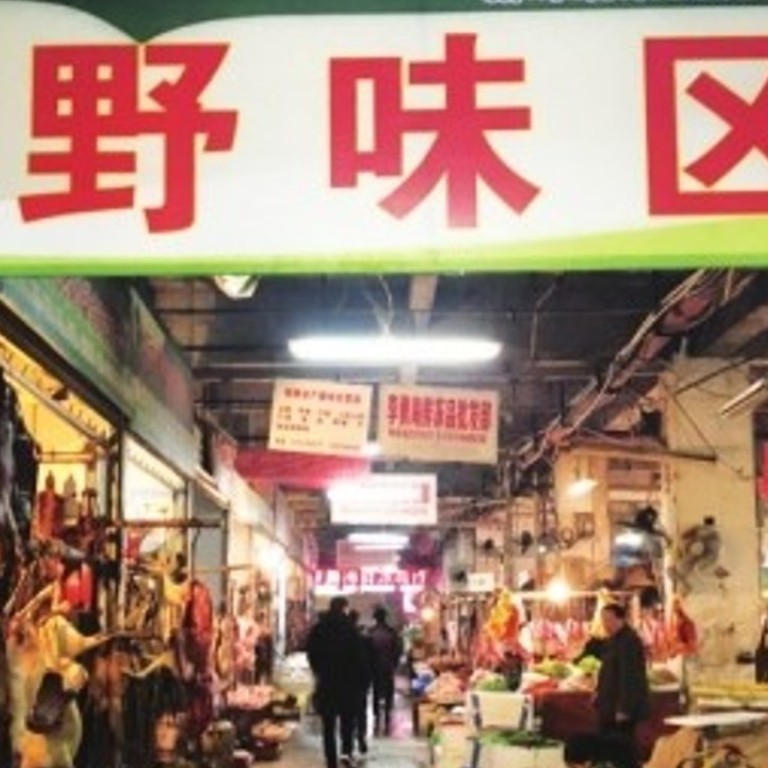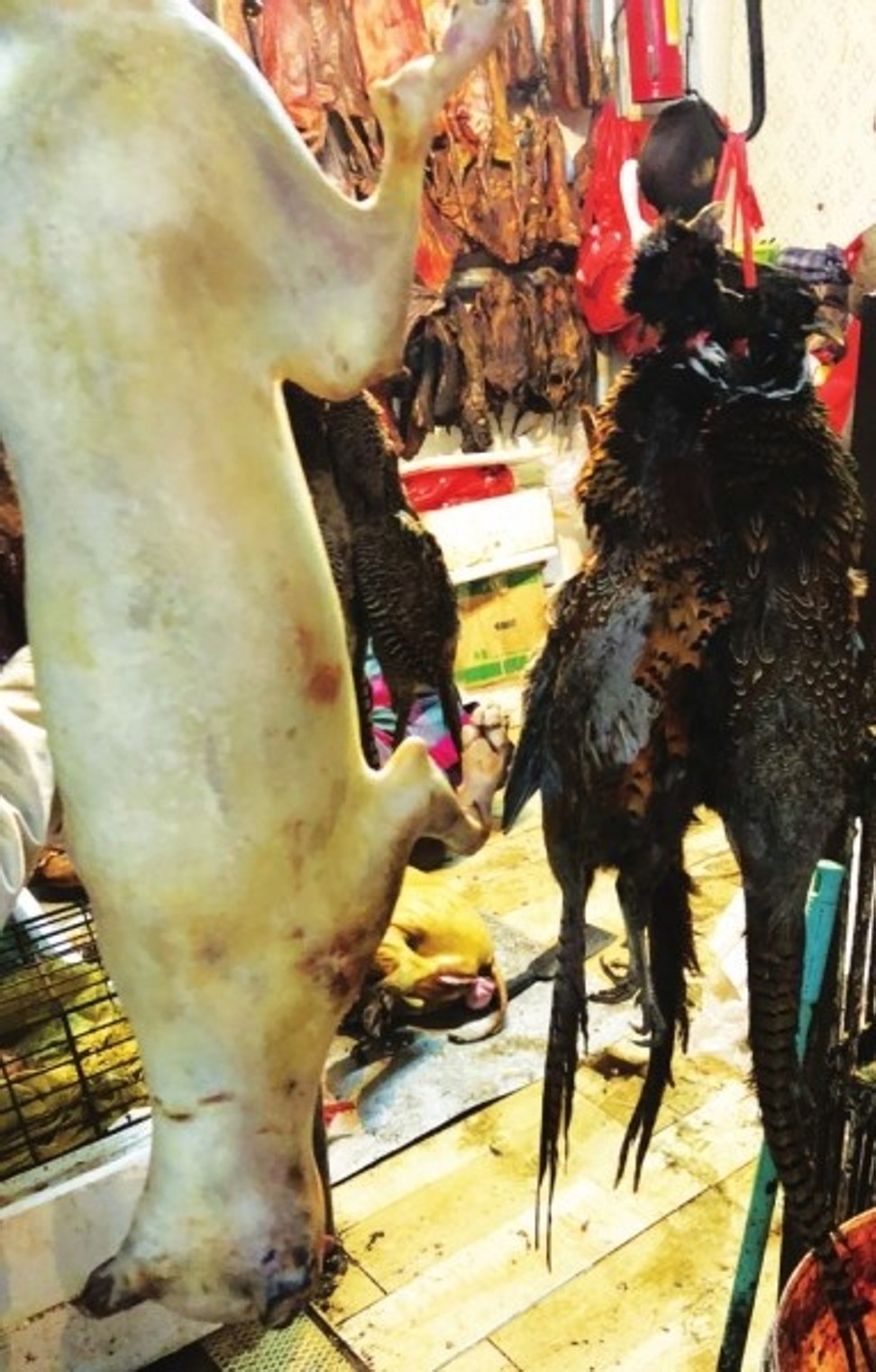
Restaurants, stores caught selling wild animals in China
One restaurant in Hunan province had live wildlife in the kitchen – including a protected species – and slaughtered them to order, according to newspaper report
Restaurants and businesses in an area of central China have been accused of illegally selling and serving wild game – including protected species – as delicacies, according to a newspaper report.
The Wulingyuan district forestry bureau in Zhangjiajie in Hunan province inspected two wet markets, three cold storage centres and 53 restaurants and hotels as part of a crackdown beginning last week, the Xiaoxiang Morning Herald reported.
They found 11 shops and restaurants selling wild animals illegally for food, the article said.
The authorities confiscated about 60kg (132 pounds) of boar meat, 21kg of muntjac deer meat, 10kg of snake soaked in wine, and 6kg of pheasants. Muntjac are classified as a protected species, the report said.

One restaurant hung a dead porcupine and lay several dead pheasants outside its premises, along with a disembowelled muntjac deer. The pheasants were on sale for 35 yuan (US$5.50) to 45 yuan each.
A wholesale market had seven shops in a “wildlife flavour” area selling wild animals.
Many restaurants in the Wulingyuan scenic area also advertised “deep mountain wild flavours” to attract customers. One restaurant allowed diners to select the live wild animals in the kitchen, the report said. Choices included pheasant, viper and muntjac.
Members of the NGOs followed a truck that delivered goods to the restaurant to a cold storage business and found huge amounts of frozen wildlife inside. They later tipped off the authorities.
Li Jun, head of the criminal investigation squad with the Zhangjiajie forestry police, told the newspaper that businesses must obtain a licence to sell wild animals.
The permits state the kind of animals sold and the source of supplies from a licensed breeder.
Only four shops and restaurants in the Wulingyuan district had a license to sell wild animals.

